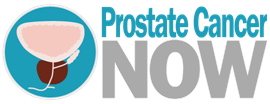Dr. Keith Jarvi Bio
If you are looking for local services or treatment from your Local Urologist in the office or hospital from a Local Urologist, contact a provider such as ( Dr. Keith Jarvi ) to inquire if they are accepting patients or you need a referral. Phone number to book an appointment (416) 586-4800 Ext. 8867 .( Dr. Keith Jarvi ) Is in good standing with the College of Physicians and Surgeons of Canada, ( Dr. Keith Jarvi ) is in good standing with Colorectal Cancer Canada and ( Dr. Keith Jarvi ) is in good standing with the Canadian Medical Association ( Dr. Keith Jarvi ) is in good standing with the Canadian Urological Association (CUA)
The speaker in the video may have no association with ( Dr. Keith Jarvi, Local Urologist Toronto, ON ).
( Dr. Keith Jarvi, Local Urologist Toronto, ON ), may talk about some of the conditions and some of the treatment options shown on the videos. Always talk with your Local Urologist about the information you learnt from the videos in regards to treatments and procedures the Local Urologist could perform and if they would be appropriate for you. Remember good information is the corner stone to understanding your condition or disease. Please contact ( Dr. Keith Jarvi, Local Urologist Toronto, ON ) to enquire if this health care provider is accepting new patients. Prostate Cancer NOW is part of the Now Health Network and its focus is on muscular and skeletal conditions
Health Talks:
Erectile Dysfunction Following a Vasectomy
Urology Information:
Depending on the case, prostate cancer may be safely followed with active surveillance or watchful waiting rather than surgery, chemotherapy or radiation. Ask your local urologist for more information on Contino®, an alternative to diapers or surgery. Patients may be referred to a urologist if their physician suspects they may need treatment for a condition relating to bladder, urethra, ureters, kidneys, and adrenal glands.
Urethral inserts like Contino® are temporarily inserted into the urethra (the tube which carries urine to the outside of the body) to prevent or reduce bladder leakage. Depending on the case, prostate cancer may be safely followed with active surveillance or watchful waiting rather than surgery, chemotherapy or radiation. Prostate cancer is the most common cancer in Canadian men. It is most common in older men
Colorectal ; Other Cancers: Dietary fibre and antioxidant intake are two of the biggest considerations
when it comes to reducing the risk of preventable cancers, such as colorectal cancer. Beets and beet
greens are among the most abundant sources of both these important nutrients.
Your body will digest and absorb short-chain carbohydrates (also called rapid-acting carbohydrates) more quickly, which can actually cause a spike in the blood sugar. Some examples would be juice, white bread and sugar. Longer-chain carbohydrates take the body longer to digest and absorb, causing less of an effect on the blood sugar. Examples are legumes, oats, barley and berries. These carbohydrates can play a very important role in diabetes management.
Surgery for prostate cancer is called a radical prostatectomy and involves the removal of the prostate gland with or without some lymph nodes in the pelvis. This can be performed with key-hole surgery called laparoscopy (usually done with a robot to help the surgeon) or through a small incision in the lower part of the abdomen called open surgery.
Once prostate cancer is diagnosed, one of the first things doctors do is determine how aggressive cancers are (also known as tumor grade) and how much of the prostate is involved and if the cancer has spread outside of the gland to nearby tissues or other parts of the body (otherwise known as tumor stage). This information is important to help determine the treatment options for men newly diagnosed with prostate cancer. What is tumor Grade?:
When a tumor is discovered on prostate biopsy, the aggressiveness of the cancer can be classified into a category called tumor grade. In general, the higher the grade, the more aggressive cancers are. In prostate cancer, the grade is most commonly described as a Gleason Score. The Gleason Score of a prostate cancer is between 2-10. Scores 6 or less are considered mildly aggressive, 7 is considered intermediate aggressive, and scores 8-10 are considered very aggressive. In summary, the higher the Gleason Score, the more aggressive the cancer is, and the greater the risk of cancer spreading outside of the prostate gland. What is tumor Stage?: Often seeing a local urologist in Toronto can help.
Education
Dr. Keith Jarvi, Local Urologist, Toronto ON, Prostate Cancer NOW
This content is for informational purposes only, and is not intended to be a substitute for professional medical advice, diagnosis or treatment. Always seek the advice of your physician or other qualified healthcare professional with any questions you may have regarding a medical condition.




Ratings for Dr. Keith Jarvi, Local Urologist, Toronto ON, Prostate Cancer NOW
Information
Education
Local Services
Action Plan
Information
Education
Local Services
Action Plan